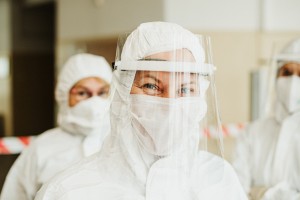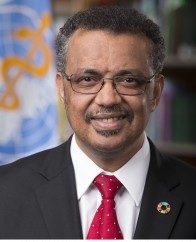
Geneva: Following seven consecutive weeks of increasing COVID-19 cases, and four weeks of increasing deaths, the World Health Organisation said today “This disease is not flu. Young, healthy people have died. And we still don’t fully understand the long-term consequences of infection for those who survive.”
According to the WHO, many people who suffered even mild disease report long-term symptoms including fatigue, weakness, “brain fog”, dizziness, tremors, insomnia, depression, anxiety, joint pain, chest tightness and more, “which are symptoms of long-COVID”.
Last week was the fourth-highest number of cases in a single week so far. Several countries in Asia and the Middle East saw large increases in cases. This despite the fact that more than 780 million doses of vaccine had now been administered globally. More than 3 million people have lost their lives due to COVID so far. Some 120 million people have fallen back into extreme poverty, while the equivalent of 255 million full-time jobs have been lost. And the crisis is far from over and the speed of infections is now even increasing.

“WHO does not want endless lockdowns. The countries that have done best have taken a tailored, measured, agile and evidence-based combination of measures. We too want to see societies and economies reopening, and travel and trade resuming. But right now, intensive care units in many countries are overflowing and people are dying – and it is totally avoidable,” WHO Director-General Dr. Tedros Adhanom Ghebreyesus told mediapersons here today.
“Make no mistake, vaccines are a vital and powerful tool. But they are not the only tool. We say this day after day, week after week. And we will keep saying it. Physical distancing works. Masks work. Hand hygiene works. Ventilation works. Surveillance, testing, contact tracing, isolation, supportive quarantine and compassionate care – they all work to stop infections and save lives, he said and lamented that confusion, complacency and inconsistency in public health measures and their application were driving transmission and costing lives.
“It takes a consistent, coordinated and comprehensive approach,” he insisted and regretted that still people in many countries appeared to be taking the approach that if they are relatively young, it doesn’t matter if they get COVID-19.
WHO warned today that global manufacturing capacity was not sufficient to deliver vaccines and other essential health products quickly and equitably to where they were needed most. It said it was ready to provide immediate technical support to assist countries in assessing the feasibility of local production, and in accessing technology and know-how.
“Investing in sustainable and secure domestic manufacturing capacity and national regulatory authorities is critical for providing essential immunization programmes, and for building strong, resilient health systems against the inevitable health emergencies of the future,” Dr. Ghebreyesus said. He though found it encouraging that Rwanda, Senegal and South Africa were taking concrete steps to start local production. “Early in the pandemic, African countries came together to agree on a coordinated continental approach to the pandemic, and now they’re coming together for a coordinated approach to scaling up manufacturing,” he informed after his discussion with several leaders from Africa about how to increase local vaccine production.
“This pandemic is a long way from over. But we have many reasons for optimism,” he said, adding that the decline in cases and deaths during the first two months of the year had shown that the virus and its variants could be stopped. “With a concerted effort to apply public health measures alongside equitable vaccination, we could bring this pandemic under control in a matter of months,” he explained.
– global bihari bureau





